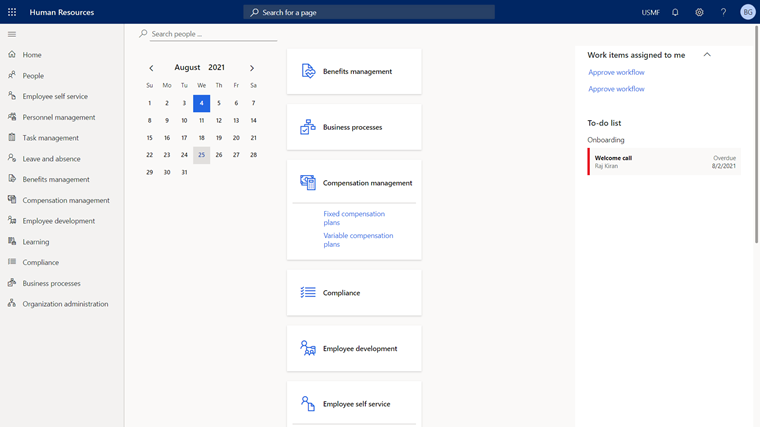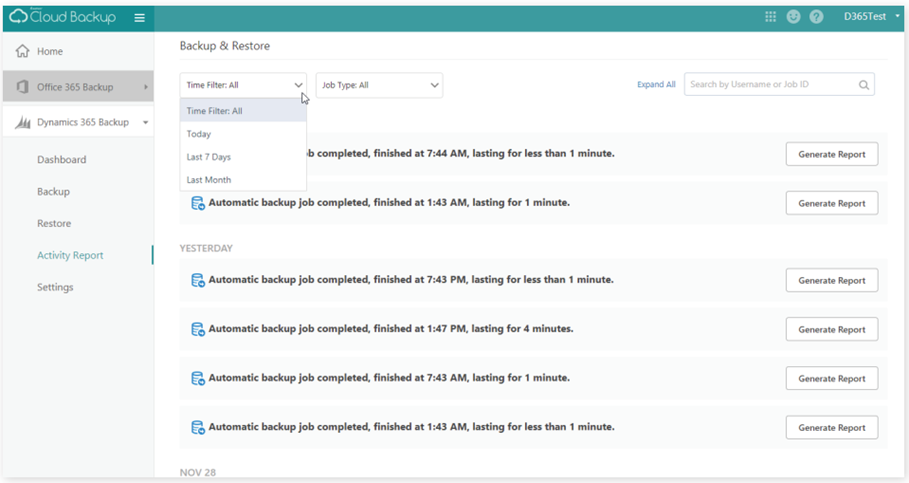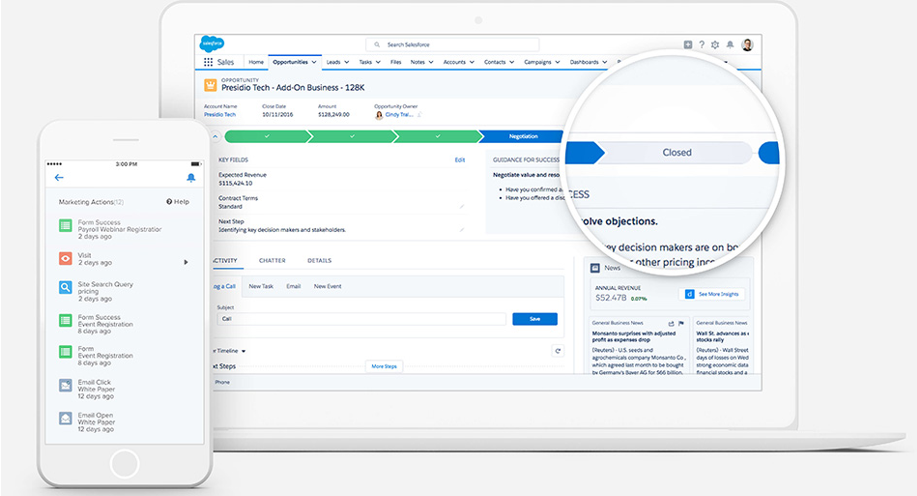Customer relationships are vital for every business. From acquiring leads to nurturing existing customers to finding new opportunities, the whole customer service cycle of is critical for business growth and continuity.
While there used to be a wide array of disparate solutions used to keep up with the growing amount of customer data, today’s Customer Relationship Management (CRM) systems have presented a more holistic way of managing customer relationships.
Modern-Day CRM Systems: Dynamics 365 vs. Salesforce
Even now, CRM systems continue to evolve. Dynamics 365 and Salesforce—two of the most competent CRM systems today—continue to cater to the growing need for better customer relationships by offering capabilities beyond the usual CRM system components.

More than having the basic capability to manage leads efficiently, proactively create marketing campaigns, or even keep track of client needs, both Salesforce and Dynamics 365 have expanded not only their basic offerings but also the integrations available to their users.
As we tackle each platform, let’s see what innovations each offers in terms of the scope of products and solutions available, the bundling of those solutions for specific needs, and their integration capabilities.
1. Scope of Products
If we think about customer connection, the departments we instantly link are Sales, Marketing, and Support.
In reality, customer data can revolve around the whole organization—from Sales and Marketing for lead acquisitions and campaigns, to Support for existing clients’ communication, to Finance for budget considerations, and even to Human Resources to keep track of new roles needed for particular projects.

Accommodating the different needs of various departments that need to handle the customer data marks a new standard for achieving customer fulfillment.

*Enterprise Resource Planning helps connect the back office to the frontline departments, which provides more transparent customer data updates to more departments.
2. Solution Bundles
Solution bundles make it easier for organizations to choose appropriate plans or licenses. Specific business or industry needs are already considered, which means specific capabilities, and even future workflow innovations, are more likely to be available.

There are also more general kinds of bundles:

3. Integrations
Solutions aren’t one-size-fits-all. There are and will be capabilities you’ll need that might not be provided with your purchased solutions.
Integrations fill this gap—they make it possible to expand on and share data with other users while allowing them to work with it in a way that’s convenient for them. Integrations also transform data into assets for business growth. The integrations for Dynamics 365 and Salesforce are outlined below.
Dynamics 365
Dynamics 365 sits on top of Microsoft Platforms (Power Platform, Dataverse, Common Data Model) which makes it deeply embedded with a lot of other Microsoft tools, providing additional capabilities beyond what’s offered in Dynamics 365.
Any tool or solution that’s compatible with Microsoft 365, such as Cloud Backup if you need a data backup solution, can also be utilized in Dynamics 365.

Below are some of the Microsoft 365 integrations:
- Teams
- Exchange
- Outlook
- OneDrive
- SharePoint
- OneNote
- Gamification
- Knowledge Management
These Dynamics 365 integrations mean that you can communicate with your colleagues through chats and calls while simultaneously collaborating on and co-authoring documents.
Data from Dynamics 365 can also be imported from or exported to other Microsoft 365 apps such as Excel, PowerPoint, and Power BI. Automation and other means to improve workflows are also possible with other Microsoft solution integrations.
In addition, LinkedIn Connections are available for Dynamics 365 for sales licenses.
Salesforce
Because Salesforce is an independent CRM solution, its integrations are mostly from third-party partners. But there are also native integrations you can take advantage of.
Below are some of the Salesforce integrations:
- Mulesoft AnyPoint Platform: Promotes the use of low-code builders to build apps
- Tableau Analytics: Provides more comprehensive analytics capabilities that can be integrated into each of Salesforce’s primary clouds
- Sustainability Cloud: Meant to track your carbon footprint, embedding relevant analytics into operating models
- Experience Cloud: A digital experience platform (DXP) for apps, websites, and portal building for improved business branding.
- Einstein AI: A comprehensive AI that helps with proactively predicting smarter business decisions for better customer relationships
- Cloud Backup for Salesforce: Protects data against data loss and other cloud risks by providing easily recoverable backup data
For a more comprehensive list of Salesforce integrations, check out Salesforce’s app store.

So, Dynamics 365 or Salesforce?
Salesforce has been one of the first CRM solutions adopted by organizations. The maturity of their solutions and the diversity of their solution bundles for specific industries have proben to be beneficial to businesses. Their expansions to include third-party integrations have also improved and capped off the capabilities offered in their basic solutions.
On the other hand, Dynamics 365, while relatively new, has shown promising innovations. Expanding its basic scope to include ERP in its CRM solutions provided a better connection for more departments in the organization, increasing the value of transparency and promoting a more holistic way of managing customer data.
Its holistic integration with Microsoft 365 has been advantageous for advanced potentialities as well as for security prospects. Being hosted in one area rather than fanning data out to various siloed third-party solutions keeps data safer from cloud risks.
In the end, the relevance of the solution to your goals—and their capabilities to innovate and keep up with growing CRM needs—will be the deciding factor in determining whether you go with Dynamics 365 or Salesforce. Which option seems like it’ll help you achieve your business goals? Let us know your thoughts in the comments below!

